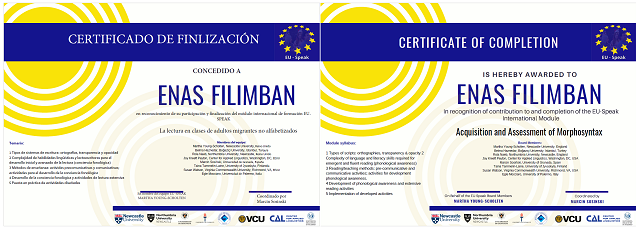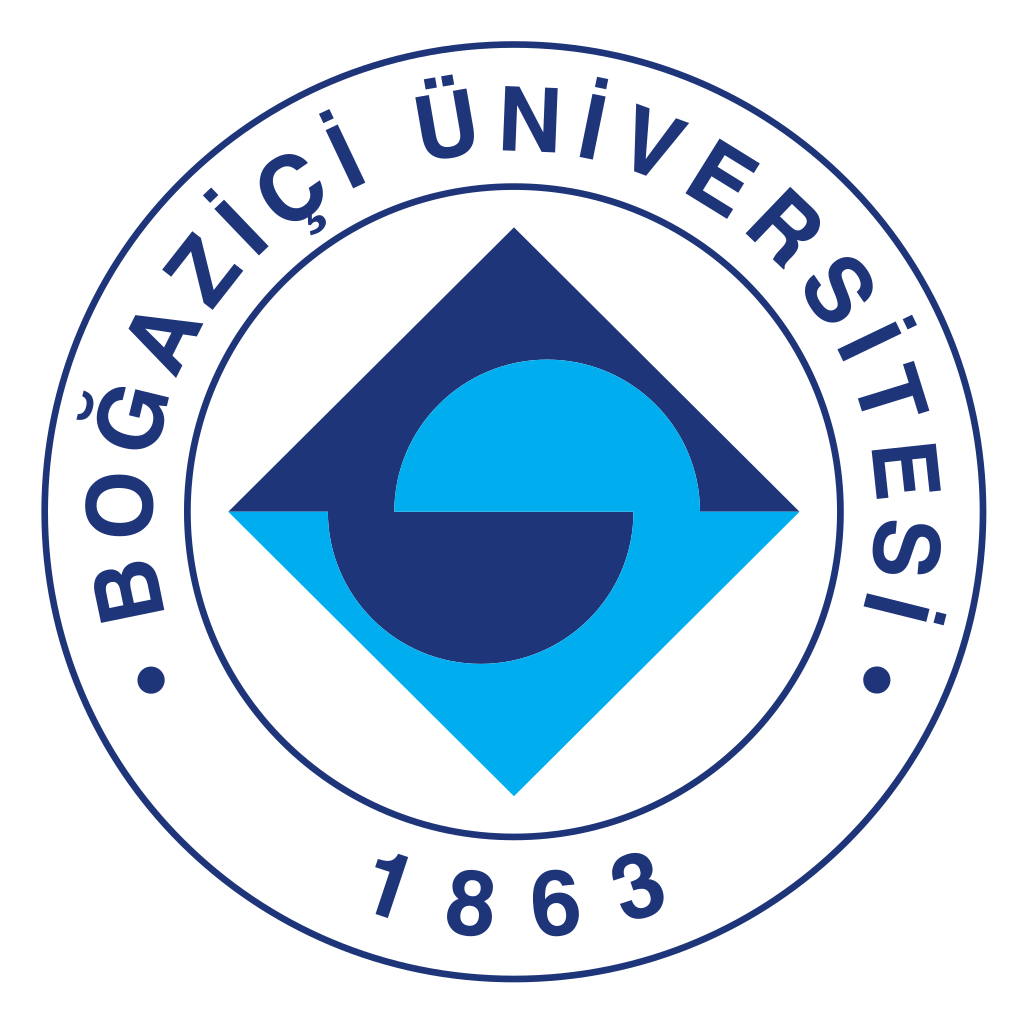Reading in a LESLLA Context
English Module information
This six-week module last ran in January 2024.
In addition to the content available on our Moodle website, the module featured five expert-led interactive webinars :
- Week 3: Phonological awareness in an unfamiliar language
- Week 4: The online Heritage Language Resources Hub for pleasure reading
- Week 5: Introducing the Digital Literacy Instructor, in Dutch
- Week 6: Writing short fiction books for emergent adult readers
- The week after module end: Free voluntary reading, led by world renowned free voluntary reading expert Stephen Krashen
In the module "Reading in a LESLLA Context" we address reading from a psycholinguistic perspective.
The module is theoretical and practical. You will find out more about how the mind is involved in beginning reading; you will hear about a range of relevant research; you will explore different ideas and methods of teaching reading.
You will discover simple ways to measure aspects of your learners’ skills; you will have access to new materials for word decoding; you will be able to create your own materials for pleasure reading and you will be able to try these out with your learners and report back to the discussion forum.
Terms and Conditions The Reading Module 2024.
Certificates provided (on request) to participants who have completed the module.
Sign up for the latest updates by email for all our modules.

Our Reading in a LESLLA Context module was designed by the University of Granada team.
Week 1 - The reader’s task
• Terms
• Lower-level skills
• Word recognition
• Higher level skills: Analysis and processing of words and of longer text in phrases
• More on higher-level skills
• Bottom-up and top-down models
• Influences on LESLLA readers, including proficiency in the target language; similarity of lexicon; level of home language literacy; target language spelling ‘transparency’ vs. ‘opacity’ and different writing systems
• Example of teaching LESLLA learners in Madrid
Week 2 - The history of writing and writing systems and scripts
• Writing systems
• The history of writing
• Proto writing
• Logographic systems
• Alphabetic systems
• The Roman alphabet
• Writing conventions
• The learning task
Week 3 - Phonological awareness and how it underpins reading
• Terms and definitions
• Phonemes
• Grapheme-phoneme correspondence
• Phonological awareness: Inter-syllabic; intra-syllabic awareness; phonemic
• Activity: Measuring students’ phonological awareness
• Activity: Considering and discussing how LESLLA learners are placed in classes
Week 4 - Research on children’s and adults’ early reading
• Classic model of the syllable
• Activity: Find in the resources for the module oral tasks used in your language to assess children’s phonological awareness before they have learned to read and think of how you could adapt these for use with your students by using words they know.
• Children’s development of phonological awareness
• Children’s reading development
• Reading in English
• Activity: discuss the the curriculum/recommendations for children’s early reading in your country and consider whether LESLLA teachers be aware of this
• Activity: (English only), discuss with those from other English-speaking countries (1a) current early reading curriculum in your country, state or province; (1b) the state the debate; (2) The implications of views on teaching early reading for those who work with LESLLA learners.
• The analogy model the phonology with respect to reading
• Connectionist models
• Stages of reading development
• Adults’ reading development with and without literacy
• LESLLA learners’ reading
• Activity: Participants discuss programmes in their country where adults have the chance to learn to read in their native language before or in parallel with learning to read in their new language and the advantageous, disadvantages and difficulties involved
• Activity: Participants are asked to look t the LESLLA proceedings and discuss what particularly interested them
Week 5 - Non-traditional options for teaching early reading to adults
• Methods in teaching reading
• Freire’s generative word method and how it’s used in Mexico (with videos)
• Activity: Discussion, integrating weeks 4 with this new knowledge and applying it in the classroom
• The language experience approach with a teaching talking about it on video
• The Digital Literacy Instructor phonics software project
• Activity: choose one of the three approaches, design a lesson plan with tasks and share on discussion forum
Week 6 - Reading comprehension and reading for pleasure
• Why we read
• Intensive and extensive reading
• Reading comprehension
• Functional vs. critical literacy
• Extensive reading
• Psychological and social benefits of extensive reading
• Activity: Discussion of critical literacy
• Extensive reading and LESLLA learners
• Activity: Discussion forum on the forum about their learners’ pleasure reading
• The problem of sufficient books
• Activity: Participants find out what their learners would want to read
• Activity: Creating a library and criteria for books
• Producing more books
Deutsch Modül Inhalt
In diesm Modul betrachten wir das Lesen aus einer psycholinguistischen Perspektive. Das Modul ist sowohl theoretisch, als auch praktisch.
Sie werden mehr darüber erfahren, wie das Gehirn in den anfänglichen Prozess des Lesens involviert ist;
Sie werden eine Bandbreite an relevanter Forschungsliteratur an die Hand bekommen;
Sie werden unterschiedliche Ideen und Methoden des Leseunterrichts erkunden;
Sie werden einfache Wege kennenlernen, wie Sie verschiedene Aspekte der Lesefähigkeiten Ihrer Lerner erfassen können;
Sie werden auf neue Materialien zum Thema Wortdekodierung zugreifen können;
Sie werden die Möglichkeit haben, Ihre eigenen Materialien zum freiwilligen Lesen zu entwerfen und diese mit Ihren Lernern auszuprobieren und darüber dann im Diskussionsforum zu berichten.
Español Información del módulo
En este módulo abordaremos la lectura desde una perspectiva psicolingüística. El módulo será teórico y práctico. Descubrirá más sobre cómo la mente está involucrada en el inicio de la lectura; oirá hablar sobre una serie de investigaciones relevantes; explorará diferentes ideas y métodos sobre la enseñanza de la lectura. También encontrará maneras sencillas de medir aspectos sobre las habilidades de sus alumnos; tendrá acceso a nuevos materiales para la decodificación de palabras; será capaz de crear sus propios materiales y ponerlos en práctica con sus propios alumnos y comentar los resultados en los foros de discusión.
Suomi Lukemisen kehittyminen psykolingvistisestä näkökulmasta
Tässä moduulissa tarkastelemme lukemista psykolingvistisestä näkökulmasta. Moduuli on sekä teoreettinen että käytännöllinen. Saat lisää tietoa siitä, kuinka mieli on mukana lukemisen alkuvaiheissa. Saat tietoa oleellisesta tutkimuksesta. Pääset tutustumaan erilaisiin lukutaidon opettamisen menetelmiin ja ideoihin. Löydät uusia, yksinkertaisia tapoja arvioida oppijoittesi taitojen eri puolia. Saat käyttöösi uusia materiaaleja sanojen dekoodaamiseen. Pääset luomaan omia materiaaleja omaksi iloksi lukemiseen, pääset kokeilemaan niitä oppijoittesi kanssa ja jakamaan kokemuksia keskustelualueella.
Türkςe Modül bilgiler
Bu modülde okumayi öğrenme konusunu psikodilbilimsel bir açıdan inceleyeceğiz. Modül hem kuramsal hem de pratiğe dayalı uygulamalar içermektedir. Modül kapsaminda ele alacagimiz konular arasinda, okumayi ögrenirken zihnin nasil bir işlev gördüğü ve bu alanda yapilan çalismalar ile okumanin nasil öğretildiği konusunda farkli öğretim yöntemleri ve yaklasimlar yer almaktadır. Ayrica, bu modülde birlikte çalistiginiz öğrencilerinizin becerilerini değerlendirme yollari keşfederken, sözcük tanimada kullanilan malzemelere erişiminiz olacagi gibi, kendi öğretim malzemelerinizi hazirlayabileceksiniz. Ürettiginiz tüm malzemeleri öğrencilerinizle kullanirken, tartisma forumunda da deneyimlerinizi paylaşabileceksiniz.









